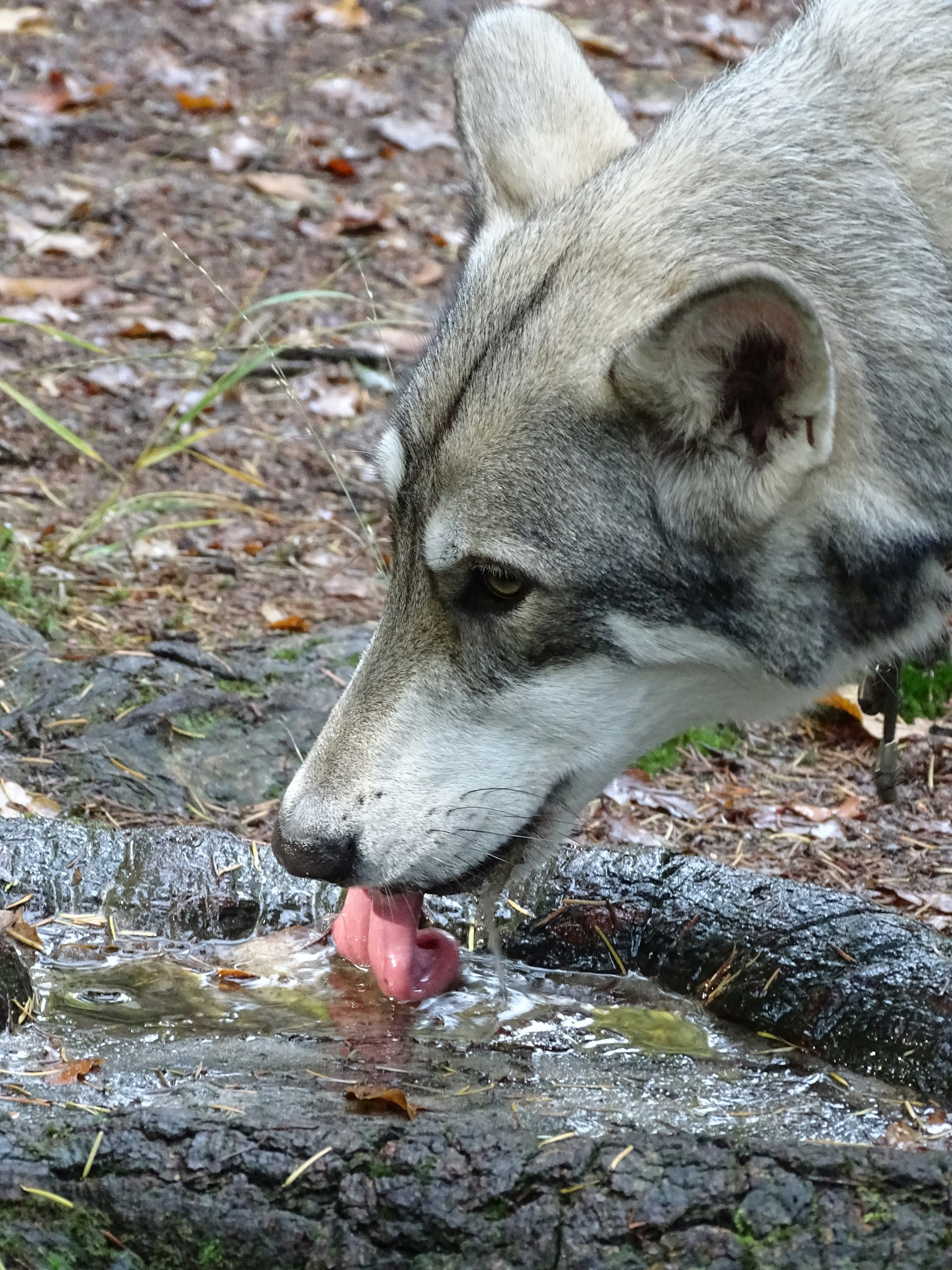Embark on a whimsical adventure into the enchanting realm of canine communication, where ear licking takes center stage! Get ready to unravel the delightful mystery behind why dogs engage in this peculiar behavior. Prepare to be amused and amazed as we delve into the captivating world of ear-licking rituals. It's like a secret language only dogs understand! From playful bonding moments to grooming galore, we'll unveil the hidden meanings and shed light on the wondrous ways our furry friends express their affection.
Just like humans, dogs thrive on persistent communication. They use body and tail language and facial expressions to convey their needs and emotions. Dogs also communicate with their owners and fellow dogs by licking their ears, which may come across as unusual or strange to you.
But why do dogs lick each other's ears? Read on to find out!
Why Do Dogs Lick Each Other's Ears?
Dog breeds have a fascinating ancestral history as pack animals, viewing humans as members of their own pack. In this canine social structure, communication plays a vital role, with barking and licking among the key behaviors. Licking serves as a way for pack members to say, "Hey, I'm here!"—an essential part of their pack dynamics, even in domesticated settings.
While dogs have come a long way from their wild pack days, their genetic makeup still echoes their ancestral instincts. Licking remains a significant means of communication for them. When your furry friend licks you, it's a heartfelt display of affection ingrained in them since puppyhood.
Just as mother dogs lick their pups for grooming and to express love, adult dogs pass on this behavior to the younger ones, establishing a communication pattern within the pack. Notably, submissive dogs often engage in licking the ears of dominant dogs, showcasing their respectful position. You can discern their roles by observing body language cues—a submissive dog may lower its tail, wear a cheesy submissive grin, or even lie down and expose its belly as a sign of acknowledging the dominant dog's authority. It's all part of the intricate language dogs use to maintain harmonious pack dynamics.
If you're curious as to why your dogs are licking each other's ears, here are a few reasons!

Grooming
When a pup licks another dog's ears, it might be a simple act associated with grooming. Just like wolves, dogs travel in a pack. Two dogs who live in the same house may consider each other a member of the same pack and will feel joy grooming each other.
Since dogs can reach their ears just with the help of their legs and not their tongue, they cannot lick them clean on their own. So, dogs help each other to clean their ears by licking them.
While ear licking can help get rid of ear mites, excessive ear licking can cause your dog's ears to become irritable and red, making them feel uncomfortable. To avoid this situation, make sure you keep a healthy check on your dog and visit the vet's office in case of any symptoms or signs of redness or irritation.

Indulging in the Delights of Earwax: A Curious Canine Palate
Amidst the fascinating world of dogs and their ear-licking tendencies, an intriguing aspect emerges – the allure of earwax. While it may initially sound off-putting to us humans, it's worth noting that there's a 100% chance your furry friend might find the taste of earwax delectable. Surprisingly, earwax is said to possess a unique salty flavor that varies from dog to dog.
Just like babies exploring the world around them through touch and taste, dogs rely on their mouths and noses to discover the nuances of their surroundings. It's this natural curiosity that might explain their enthusiasm for indulging in the curious flavors of earwax. As peculiar as it may seem, licking another dog's ears to savor the taste of earwax is simply a part of their instinctual exploration.
So, if you've ever caught your dog in the act of ear licking, don't be too alarmed. It's not a sign of anything necessarily worrisome or harmful. Rather, it's a reflection of their innate curiosity and the sensory wonders they encounter on their canine adventures.
As always, while it's fascinating to delve into the quirky behaviors of our furry companions, it's essential to ensure their overall health and well-being. Regular ear care and monitoring are crucial to prevent any potential issues related to excessive licking or irritation. By maintaining a balance between their natural inclinations and their overall care, we can create a harmonious environment that embraces their unique doggy explorations.
Licking is a Sign of Respect for Other Dogs
Beyond the fascinating aspects of taste and curiosity, dogs' ear licking behavior holds yet another heartfelt dimension – it signifies a profound respect and appreciation for their canine and human companions alike. When dogs engage in ear licking, it serves as a touching display of the bond and friendship they share.
Within their canine social structure, dogs adhere to an unwritten code of respect. Licking each other's ears is a gentle and affectionate gesture that reinforces the deep connection they feel towards their fellow pack members. By offering this respectful act, dogs communicate their admiration, acknowledging the hierarchy and social dynamics within their pack.
Moreover, when a dog extends this endearing behavior to their human companions, it further demonstrates the profound love and respect they hold for their trusted owners. Through ear licking, they express their deep bond, recognizing their human as part of their extended pack.
It's important to note that the act of licking, whether directed towards fellow canines or humans, is an instinctual behavior learned from their early days as puppies. Puppies observe and imitate their mothers who use licking as a means of grooming, showing affection, and strengthening the bond within the pack.
So, the next time you feel the gentle touch of your dog's tongue near your ears, embrace it as a sign of respect, love, and the unbreakable bond you share. It's a testament to the extraordinary connection between humans and their four-legged companions, filled with admiration and a deep sense of mutual appreciation.

To Protect His Fellow Companion
Dogs share a very strong connection and can sense when something is wrong. If one pup is suffering from a medical condition, for example, a heat stroke, another dog might lick his ears to provide comfort and prevent him from getting unconscious.
If you notice that your dogs are excessively licking each other, especially when the temperature rises, take necessary steps to keep them hydrated and fresh.
Your dogs can catch dangerous viruses from stray or even unvaccinated dogs. To keep you and your dog family safe, you can get your dog the Fi dog collar. With the Fi dog collar, you can monitor your dog's health status by comparing it with other dogs with the Fi collar, and you can also monitor their night's sleep. The collar has a very sleek design and a long battery life, so you don't need to worry about constantly charging it.

Helpful in Detecting Ear Infections
When dogs develop an ear infection, they emit a foul odor that they can sense thanks to their strong sense of smell. Even if you see no visible signs and symptoms of the infection, dogs can detect them and may try to clean them out by licking the ears.
This may sound gross, but these infections produce yeasts, and your dog might be attracted to the smell and taste. If you notice that your dog starts excessively licking your other dog's ears, consider taking them to the vet for a quick check-up.
How Can You Stop Or Minimize This Behavior?
If you find yourself wanting to minimize or discourage your dogs' ear-licking behavior, we've got you covered with some helpful strategies. Here are a few approaches you can try:
- Training and Distraction Techniques: Teach your dogs alternative behaviors through positive reinforcement training. When you notice them about to engage in ear licking, redirect their attention with a favorite toy, a tasty treat, or an engaging game. This helps them associate positive experiences with alternative behaviors instead of ear licking.
- Regular Grooming and Ear Care: Ensure your dogs' ears are clean and healthy. Regularly clean your dog's ears as recommended by your veterinarian to prevent excessive buildup of wax or debris. By maintaining proper ear hygiene, you can discourage them from feeling the need to engage in excessive licking.
- Behavior Modification: If the ear licking is becoming problematic or causing discomfort, consult with a professional dog trainer or animal behaviorist. They can assess the underlying reasons for the behavior and provide customized techniques and strategies to modify it effectively.
- Socialization and Pack Dynamics: Dogs may engage in excessive ear licking due to social hierarchy within the pack. Encourage healthy pack dynamics by providing structured socialization opportunities and ensuring clear leadership and boundaries. This can help minimize the need for excessive licking as a means of dog communication.
Remember, every dog is unique, and what works for one may not work for another. Patience, consistency, and understanding are key when trying to modify any behavior. If you're unsure or struggling to address the issue, seek professional guidance to ensure the best outcomes for both you and your furry companions.

Conclusion: Understanding and Addressing Ear-Licking Among Dogs
If you observe your dogs engaging in ear licking, rest assured that it is a natural behavior within their social dynamics. It often serves as a loving gesture, a display of respect, or an expression of excitement upon reuniting with each other.
While ear licking is generally harmless and indicative of positive interactions, it's crucial to remain vigilant for any potential underlying issues. Occasionally, excessive or persistent ear licking may signal an underlying problem that requires attention. If you suspect the behavior is becoming troublesome or causing discomfort for either dog, it's important to take appropriate measures.
By following the insights shared in this article, you now have a better understanding of why dogs lick each other's ears and have gained practical tips to address or minimize the behavior. Remember, maintaining regular ear care, implementing behavior modification techniques, and seeking professional guidance if needed can contribute to a harmonious environment for your canine companions.
We hope this article has provided the answers you sought and empowered you to take control if the ear licking situation seems to be escalating beyond what is considered normal. By nurturing a happy and balanced relationship with your dogs, you can create a loving and enjoyable environment for everyone involved.
For more helpful articles about pet-parenting tips, check out the Off Leash blog at TryFi.com.
Want to know more about TryFi.com? The Fi Dog Collar is a GPS tracking collar that not only keeps track of your dog’s location, activity levels, and sleep patterns, but it also alerts you if your dog escapes your backyard. This is the fastest way to find your dog after an escape. Try the Fi Dog Collar today!






